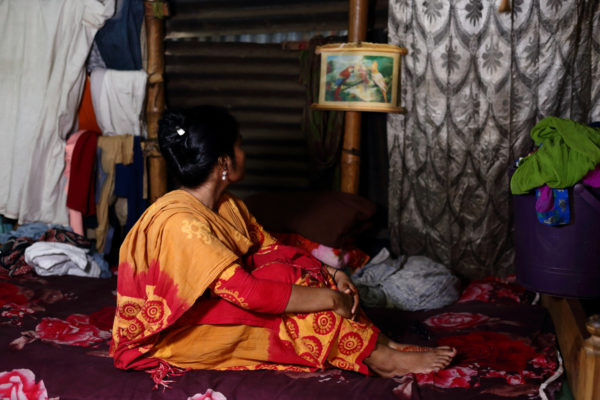In all countries and across all sectors, female workers on average are paid less than their male counterparts.
The COVID-19 pandemic has only exacerbated this disparity as women were the first to lose their jobs. The pandemic had a devasting impact on gender equality for women, both at work and in the home. We’ve seen years of progress stalled, even reversed since March 2020. This makes taking action to secure women’s right to economic justice and equal pay even more important.
What is the gender pay gap?
Put simply, the gender pay gap is the disparity between what women and men are paid for equal work. Yet it is also about so much more.
Women’s right to equal pay is tied to economic justice.
Economic justice includes women’s right to access decent work, exercise control over productive resources and participate in economic decision-making. This Equal Pay Day, we wanted to shine a light on the female garment workers who are fighting for their right to equal pay and decent work.
She Wears the Cost: demanding fair wages and decent work
35 million women work in the garment industry.
Many of the clothes we have hanging in our closets are produced in garment factories in countries like Bangladesh and Cambodia.
The brands that sell these clothes, like Nike and Just Jeans, continue to see soaring profits. Yet, the garment workers who create the clothes often endure gruelling hours, face sexual harassment at work and are paid unfair wages.
With a typical day starting at 5am and ending at 10pm, Nurjan, a senior machine operator at a garment factory in Bangladesh, works an average of 60 hours a week just to get by – in Australia the average work week is 38 hours.

She has worked under tough conditions for nearly a decade and has experienced and witnessed frequent abuse and harassment at work. “Verbal abuse is extremely common. If we make a mistake, he compares us to prostitutes and the factory with a brothel. We are workers who are earning money by working hard, we should not be treated in this way,” she says.
ActionAid workers cafés in Bangladesh offer garment workers a place to meet, get training and legal advice so they can take collective action. Since attending a workers’ café, Nurjan say she now has the knowledge and confidence to demand their rights and stand up against violence at work.
This International Equal Pay Day, support women like Nurjan in accessing economic justice. Join ActionAid in calling on big brands like Nike to pay their workers!